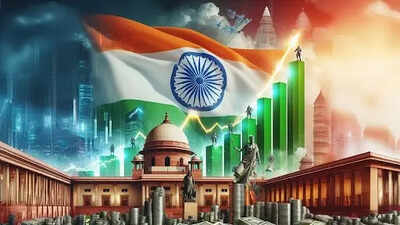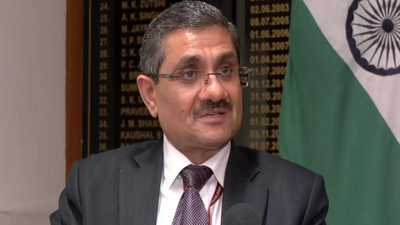Union commerce and industry minister Piyush Goyal on Tuesday reaffirmed India’s goal of becoming a $5 trillion economy by 2027, citing strong macroeconomic fundamentals, robust policy reforms, and inclusive national effort. Speaking at a virtual session hosted by the Merchants’ Chamber of Commerce and Industry (MCCI), Goyal described India’s economic progress as a “quantum leap”, driven by a decade of transformational governance under Prime Minister Narendra Modi.“We are well on track to achieve the $5 trillion economy goal in the next three years. This will be the first milestone on our journey to Viksit Bharat by 2047,” Goyal said, as cited by news agency PTI. He expressed confidence that India will also become the world’s third-largest economy by 2027.Acknowledging current global economic uncertainties and geopolitical tensions, the minister said, “Great economies aren’t built in calm waters… this is India’s time. We must seize the moment and work together to claim our rightful place among the world’s leading nations.”Goyal emphasised that the government’s approach has centred on inclusive, sustainable, and honest growth, guided by the principles of “Seva, Sushasan and Navachar”—Service, Good Governance and Innovation. “The last 11 years have not been about incremental change. We have aimed for quantum leaps,” he noted.The minister highlighted India’s transformation from being part of the “Fragile Five” to ranking among the top five global economies. He credited this to high foreign exchange reserves (now at $698 billion), a resilient banking system, and historically low inflation levels.On trade, Goyal underscored India’s strategy of signing Free Trade Agreements (FTAs) with advanced economies like the UK, Australia, and the EU. “These FTAs are not with weak or competing economies but with advanced markets, offering immense opportunities for Indian MSMEs and exporters,” he said.He also outlined India’s readiness to lead in emerging technologies such as artificial intelligence, quantum computing, and 3D printing, and stressed the importance of innovation-led exports. “Rather than fearing job losses, we should focus on creating new employment. Our youth are aspirational, and we are working with industry bodies like NASSCOM to build AI skills,” Goyal added.Referring to citizen welfare, he cited recent evacuation efforts from conflict zones such as Ukraine and Iran as examples of Prime Minister Modi’s commitment to Indian lives. He contrasted India’s current democratic stability with the Emergency imposed in 1975, calling present-day India an “oasis of stability.”Goyal concluded by encouraging Indian businesses to scale up, saying, “Scale leads to competitiveness, which in turn fuels exports and prosperity. India’s growth story belongs to all of us.”






